It is a great feeling when your guests go home raving about what a great time they had and how beautiful your wedding was. Those compliments make all the planning and hard work worthwhile. However, nothing can make or break the beauty of an event more than bad color choices. We often underestimate the power of color and the impact that a wrong combination can have on the aesthetic! Color is everywhere- the linens, lighting, bridal party attire, place settings, furniture, favors, and sometimes even the desserts and specialty drinks.
One of the more challenging meetings for many brides is the floral consultation. Choosing the right flowers and colors to fit their wedding turn into a daunting task. Well we are here to help with a little lesson on color schemes for you to use as inspiration when making those selections.
What is a Color Scheme?
Color schemes refer to different combinations of colors based on their relationships to one another on the color wheel. We use Sir Isaac Newton's color wheel, pictured below, as reference for creating these schemes. Other important terms to know are hue, value, and saturation. Hue refers to the actual color of an object. Value is basically how light or dark a color is due to the amount of white or black that is added. Finally, saturation is the degree of a hue's purity, or its true color.
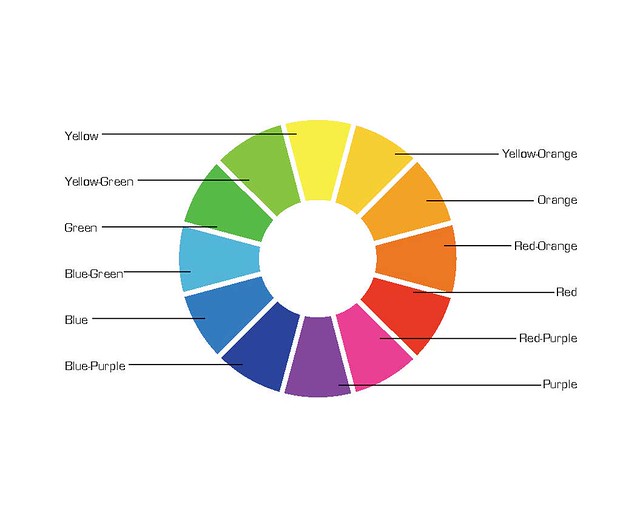
A Monochromatic Scheme:
For this simple color scheme, choose only one hue for your arrangements. Then, to avoid monotony, pick flowers in a variety of values and saturation within that hue. You may also add neutral hues, such as white or cream, to create even more visual interest. Why use this color scheme? Well, because there is such a large amount of one hue and the color is so concentrated, a monochromatic bouquet is very lush and beautiful. It is a great choice for a traditional ceremony or a super-chic wedding soiree.
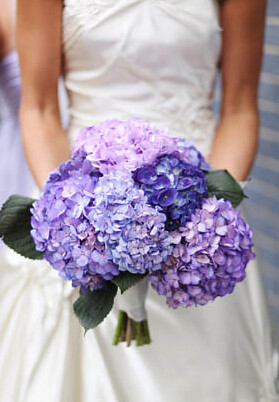
image credit: Red Gallery
An Analogous Scheme: Choose about three different hues that lie next to one another on the color wheel. More than three hues may be used, but when using a conventional twelve-color wheel this is a good amount. You may also add value and saturation variations within each hue. Because the hues are so close to one another yet still maintain their significant properties, this is an elegant, put-together arrangement. The combination is harmonious and very romantic, good for an evening or more upscale wedding.
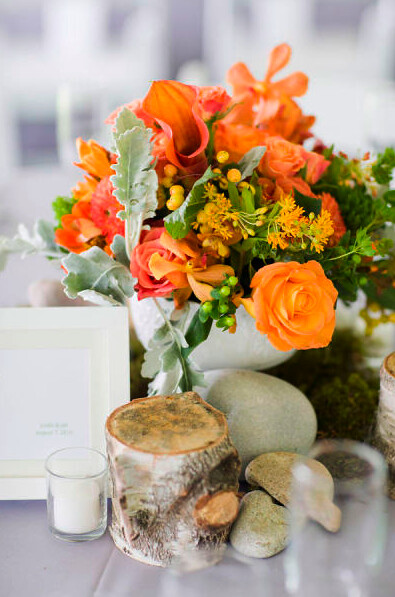
image: Corbin Gurkin
A Complementary Scheme: Choose two colors that lie directly opposite one another on the color wheel. Try not to use much variation of value or saturation in this bouquet as that may take away from the balance between the two hues. Complementary colors intensify one another's appearance, so this combination is vibrant and energetic. It is good for a bride that is a bit more daring, and a perfect fit for a summer or beach wedding.
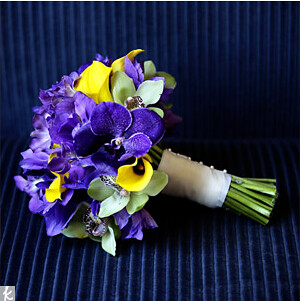
image: Love Life Images
A Double Complementary Scheme: Pick two hues that are adjacent to each other on the color wheel and then choose their respective complements which lie directly opposite of them on the color wheel. The hues in a double complementary color scheme intensify each other’s color, but at the same time they provide harmony and balance. This combination is a bit unexpected provides an eclectic feel, which is an excellent choice for a more modern and edgy wedding.
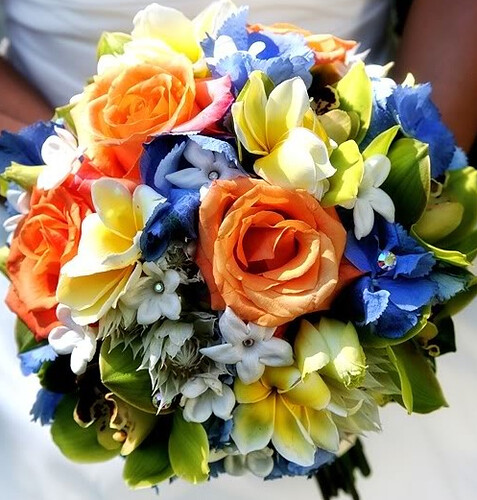
image source: Wedding Bee
Happy planning!
Marie





No comments:
Post a Comment